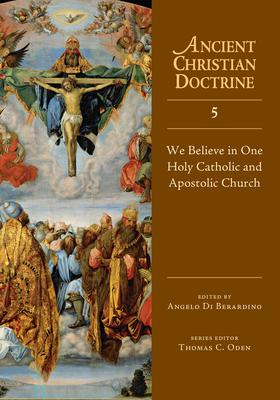When was the church founded? Jesus spoke of the kingdom of God and not of a religious organization subsequently called church. We don't find in the Gospels expressions which make reference to the foundation of a new religious community, a new and distinct community of followers of Jesus. But after the resurrection of Jesus, his followers, as a result of his express command, gather together not only those from the people of Israel but men and women of all nations.
The final clauses of the Nicene Creed spell out, briefly and to the point, the church's self-understanding in these early centuries. Angelo Di Berardino assembles a wide range of texts and teachers of the church during these years to enrich our understanding and deepen our faith in the great mysteries expressed here.
The Creed quickly hits the four marks of the church--that it is "one holy catholic and apostolic." What do we mean by professing each of these? Di Berardino helps us to give an answer with the help of the fathers of the church.
The volume closes, as does the Creed, with a consideration of baptism (the traditional entrance for people into the church) and two central features of the church in the future--the expectation that all of God's people will enjoy the resurrection of the dead and the life of the world to come.
The five-volume Ancient Christian Doctrine series follows up on the acclaimed Ancient Christian Commentary on Scripture to provide patristic commentary on the Nicene Creed, translating source material from the church fathers into English for unparalleled insight into early church history.
